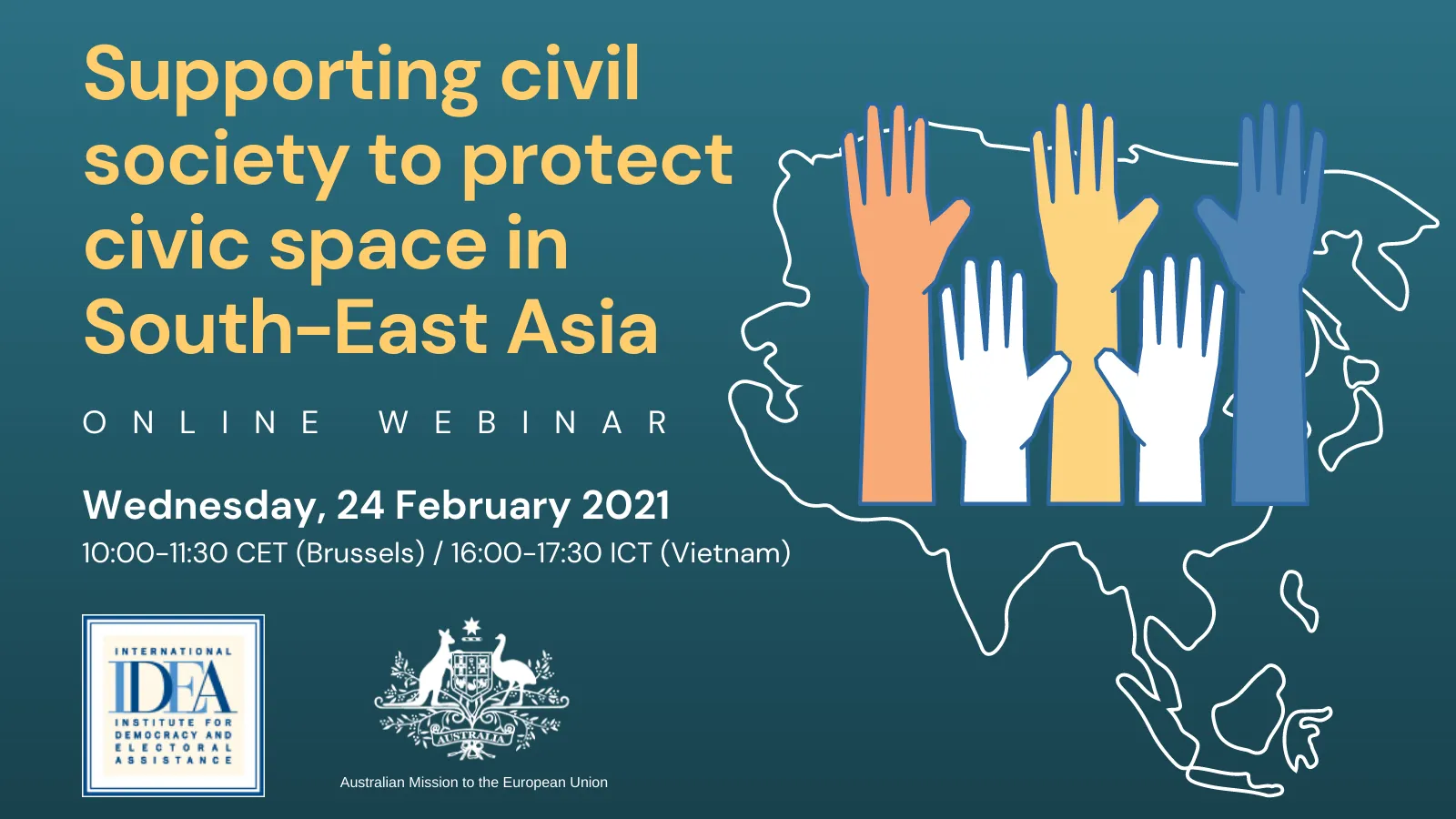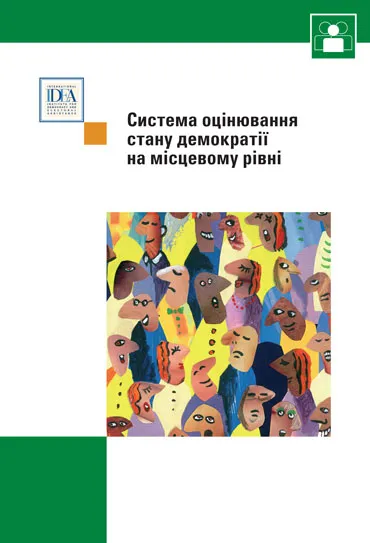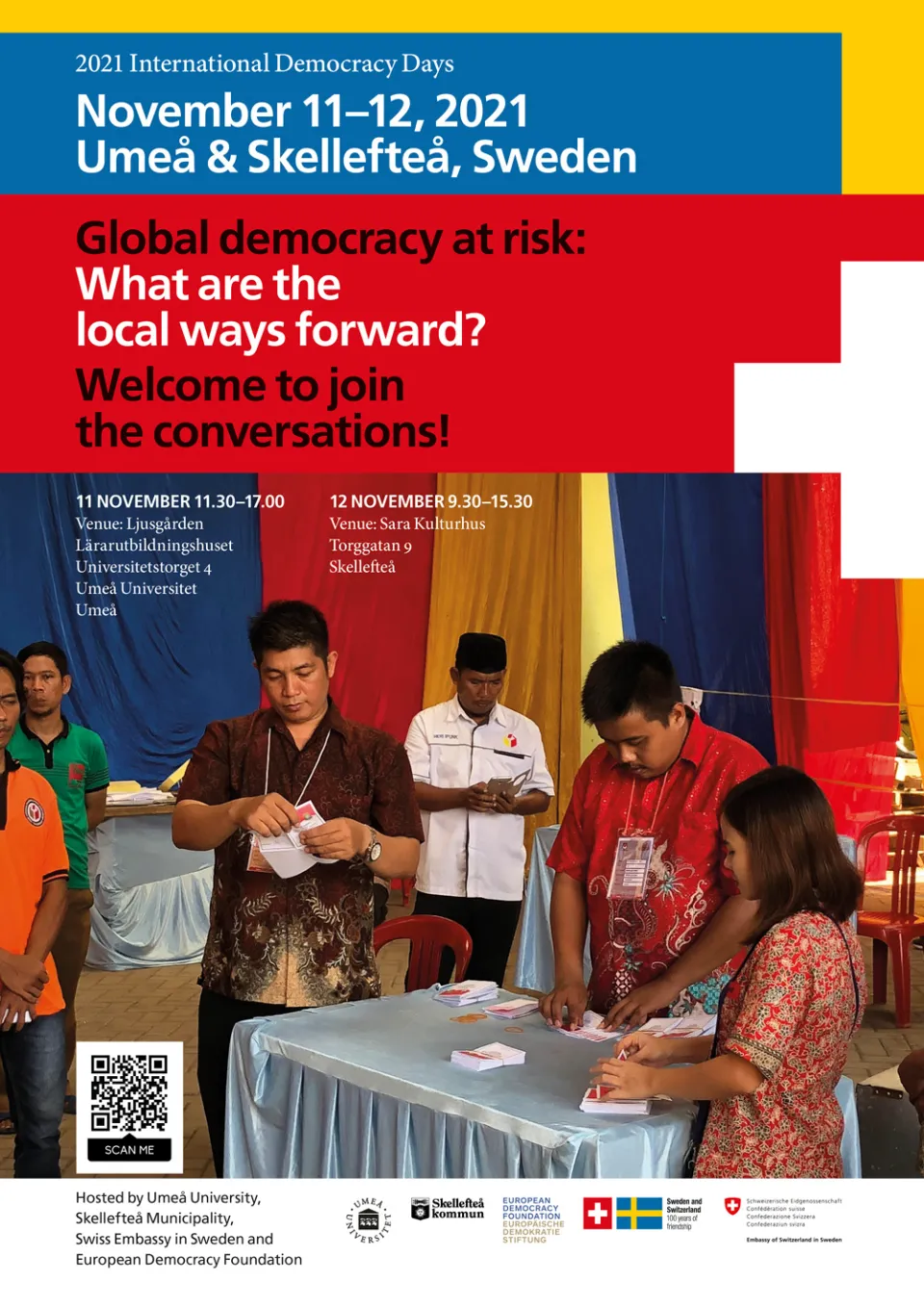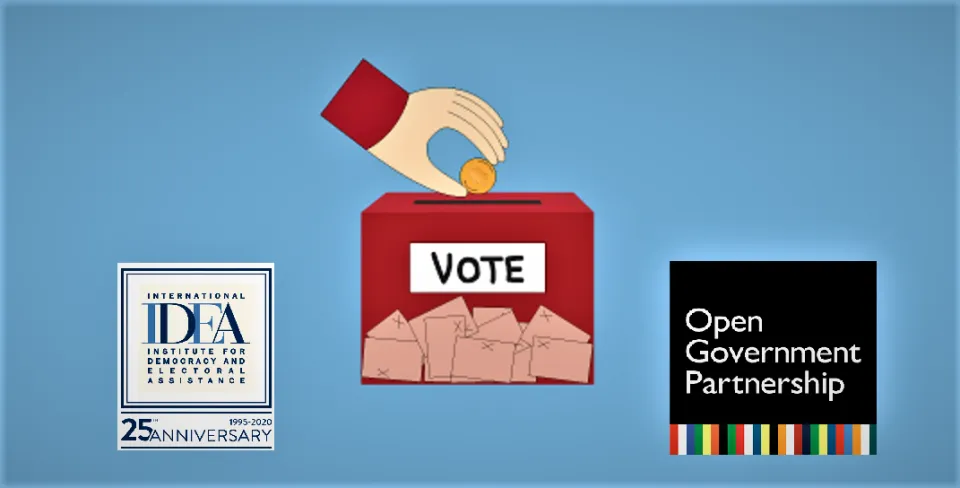Supporting civil society to protect civic space in South-East Asia

One of the most concerning developments in today’s global state of democracy is the widespread shrinking of civic space. In various countries, civil society has been curtailed by governments who use oppressive laws, cut off funding and harass civic actors who speak out in defence of democracy. In others, civil society needs support to become more effective in holding government to account, advocating for democratic reform, fighting corruption, protecting human rights or fostering democratic participation. South-East Asia has been no exception to this. Only half of the region’s countries are democracies (Indonesia, Malaysia, Myanmar, The Philippines, Timor-Leste), while one of those (The Philippines) is considered a backsliding democracy. International IDEA’s Global State of Democracy indices find that on civil liberties, South-East Asia performs well below the global level, while also the level of civil society participation is below the world average.
In many countries, emergency measures that were introduced following the outbreak of the COVID-19 pandemic have further concentrated power in governments and weakened civil society organizations (CSOs). Although it is still too early to draw final conclusions, leading thinkers have argued that those countries that seem to have responded better to the pandemic overall are those where robust government measures and a vibrant civil society have gone hand-in-hand. Yet, whereas support to civic space is often mentioned as a key international concern, less attention exists for strengthening the relationship between governments and civil society. Post-pandemic, the question therefore emerges how to increase accountability and transparency between government and civil society; where are the obstacles and hurdles?
In its Action Plan on Human Rights and Democracy 2020-2024, adopted in November 2020, the EU prioritises protecting civic space, and highlights the importance of promoting an enabling environment for civil society. Australia has also recently increased its focus on supporting civil society among its development cooperation priorities. Meanwhile, new donors to civil society have emerged, such as China, thus changing the context in which to support civil society. This seminar will explore the need to protect civic space in South-East Asia as well as the role of civil society in its own right and their relationship to government institutions. The seminar will seek to address the question “how to increase accountability and transparency between government and civil society?”, broken down into a number of sub-questions:
- What challenges and opportunities have emerged from the COVID-19 pandemic from a civil space point of view?
- How to enhance the link between governments and civil society in rural and urban areas, as well as among CSOs?
- How can actors like Australia and the EU help to bridge these relationships?
- What is the role of new donors to CSOs in the region, such as China?
Speakers:
- Nicola Nixon, Director of Governance, The Asia Foundation
- Janjira Sombatpoonsiri, Research-Oriented Assistant Professor, Institute of Asian Studies, Chulalongkorn University, Thailand
- Dr Min Zaw Oo, Executive Director, Myanmar Institute for Peace and Security
- Chiara Adamo, Head of Unit Gender, Human Rights and Democratic Governance, Directorate-General International Partnerships, European Commission
The event will be inaugurated by David Dutton, Deputy Head of Mission, Australian Mission to the European Union and NATO and moderated by Sam van der Staak, Head of Regional Europe Programme, International IDEA.



